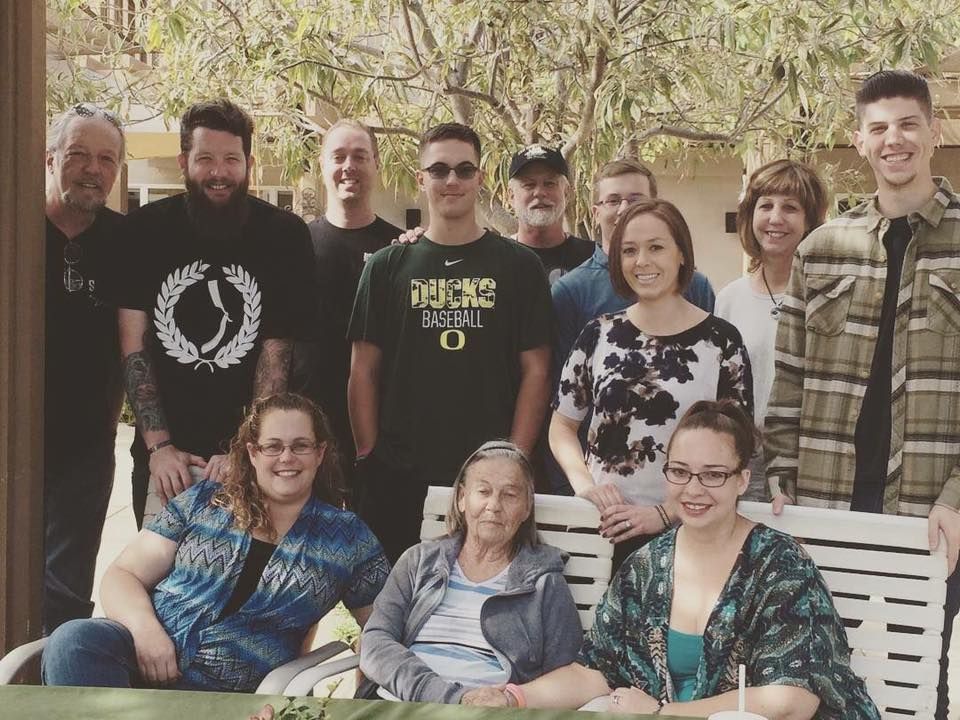
Creating a Safe and Supportive Environment in Memory Care Communities
For individuals living with Alzheimer’s or other forms of dementia, a thoughtfully designed environment plays a crucial role in their comfort, safety, and overall well-being. Memory care communities are specifically built to support the unique needs of residents experiencing memory loss—helping reduce confusion, prevent accidents, and promote a sense of calm and familiarity.
Holistic Approach to Memory Care
Memory care that takes a holistic approach engages a person on a physical, mental, emotional, and spiritual level. Providing an alternative to institutional care, MesaView’s beautiful rooms and inviting grounds evoke a homey feel, while still having enough space to accommodate specialized equipment for mobile care services. Our caregivers and staff are familiar with the providers and organizations that offer mobile care services for the elderly. We collaborate with them to make sure your loved one is comfortable and comprehensively cared for.
Safety First: A Secure Layout
Wandering is a common behavior in individuals with dementia, so safety is a top priority in memory care design. Communities often feature secured entrances and exits, as well as enclosed outdoor areas where residents can safely explore without risk of getting lost. Hallways are typically wide and circular, reducing dead ends and allowing residents to walk without frustration or confusion.
Lighting and Ambience
Natural light and soft interior lighting help regulate sleep patterns and reduce the risk of sundowning, a condition in which confusion and agitation worsen in the late afternoon or evening. Calming color palettes, minimal noise, and cozy furnishings further contribute to a peaceful atmosphere that feels welcoming and safe.
Visual Cues and Wayfinding
Clear signage, contrasting colors, and memory boxes outside of resident rooms can help individuals navigate their environment more easily. Personalized décor, like family photos or favorite items, helps residents recognize their space and feel more at home. These small visual cues can minimize anxiety and support independence.
Staff Trained in Compassionate Care
What truly defines a memory care community is not just the physical environment—but the people within it. Staff receive specialized training in dementia care techniques, communication strategies, and behavioral support. Their approach focuses on patience, empathy, and creating positive, respectful interactions that preserve dignity and reduce stress.
Engagement and Purpose
Memory care communities are designed not only for safety, but also for joyful engagement. Activity spaces are structured to support music therapy, art, gardening, and more—all tailored to meet cognitive and physical needs. Residents are encouraged to participate at their own pace and comfort level.
A safe and supportive environment is the foundation of quality memory care. When thoughtfully designed and staffed with compassionate caregivers, memory care communities can become places of comfort, connection, and meaningful living for those navigating the challenges of memory loss.
Memory Care Community in Southern California
MesaView Senior Assisted Living in La Mesa, California, is a memory care community in Southern California. We understand that our residents’ holistic experience of life (social, spiritual, emotional, mental, physical) is vitally important. Research says one of the best things you can do to delay or slow the progression of Alzheimer’s disease or dementia is to keep your mind active. Our compassionate caregivers provide top-notch, individualized care to each of the members of our communities.
As dementia progresses, many families face difficult decisions regarding the care of their loved ones. While in-home care is an option for some, others may find that a memory care community is better suited to meet the evolving needs of someone with dementia. Memory care communities are specialized residential settings that provide 24/7 care, safety, and support for individuals with Alzheimer’s and other forms of dementia.




